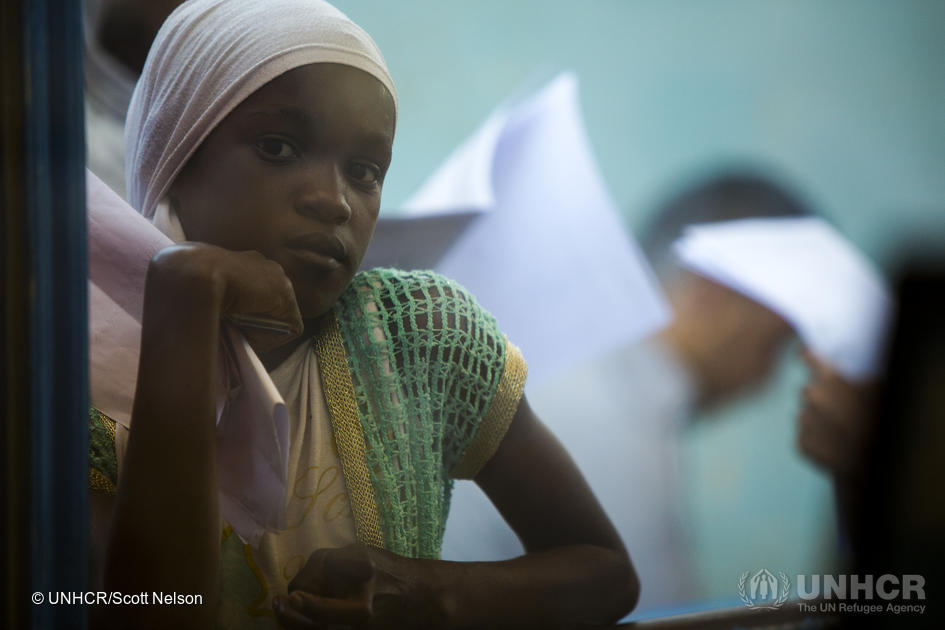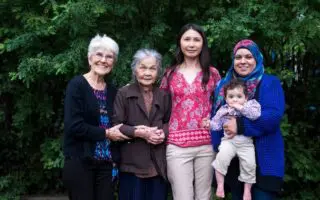
A young African girl seeking legal assistance at UNHCR’s headquarters in Cairo (2016). © UNHCR/Scott Nelson
By Jean-Nicolas Beuze, UNHCR Representative in Canada
Would you ask a victim of sexual abuse to share details about her ordeal? Would you ask a torture survivor to provide proof of every blow he endured? Or would you ask a child to recount every step they took while they were running in fear from falling bombs? These are all examples of what refugee claimants have to do if they want to be protected in Canada.
Their lives depend on being able to remember every detail of their suffering and to present evidence to back up what they say. Any deviation in details or omissions may be used to judge them as liars. Each word matters as their story is scrutinized to see whether they meet the legal criteria of being a refugee in Canada. Only those who can prove they risk their lives if sent back home are allowed to stay and granted status as a refugee.
But how can anyone understand such complex legal proceedings after having just arrived in a new country whose language and socio-cultural norms they know nothing about? How can you be prepared to respond to questions from a stranger who will determine your fate when you are still struggling with the trauma of the past?
Legal aid is all about making sure that refugee claimants get the appropriate support to present their claims. To ensure the fairness of the process, Canadian lawyers advise which evidence should be presented and which elements of the story really matter.
Since 16 April, such legal assistance has been dramatically cut back in Ontario. As a result of budget cuts, refugee claimants are much more limited in their ability to access the critical services of lawyers.
Ontario receives the largest number of refugee claimants in Canada. Last year, 64% of them were recognized as refugees. The question before us is would they have been recognized without having benefitted from legal aid?
Refugee claimants represented by lawyers were 275% more likely to succeed than unrepresented claimants, according to a 2011 study by Professor Sean Rehaag.
Aside from compelling human rights arguments supporting legal assistance, one shall not forget that an efficient and cost-effective asylum system relies on the quality of the cases presented. Cases well prepared with the help of a lawyer are reviewed more rapidly and have less chances of being appealed. An efficient system allows for timely recognition as a refugee so people could move on to become active members of society or be removed from Canada if they are found not to be in need of protection. In other words, legal aid not only makes things better but also cheaper for everyone, Canadian tax payers and refugee claimants alike. So cutting funds at the frontend of the process may not be the best way to create savings.
Lawyers in Ontario and refugee advocates have rightly called for financial support to be reinstated. Canada cannot let domestic politics put the lives of vulnerable individuals at stake. The reality is that a failure to invest in legal aid will very likely mean that people are sent back to torture or persecution for having failed to navigate our complex legal system.
Upholding values has a price. Justice and fairness are values I have seen shared by all Canadians. Depriving the most vulnerable in society, those who do not have a face or a say, access to justice and protection through asylum would just not be Canadian.





